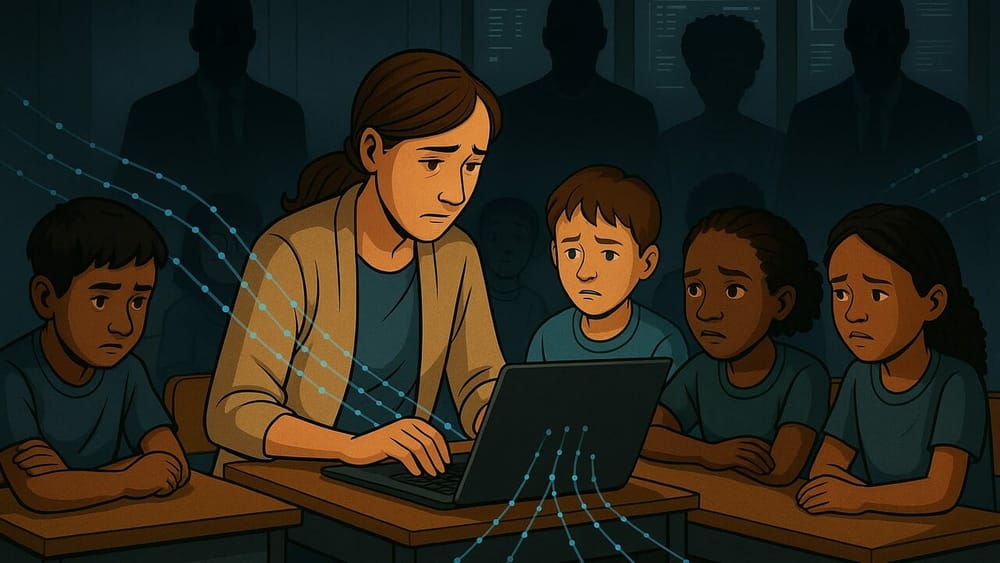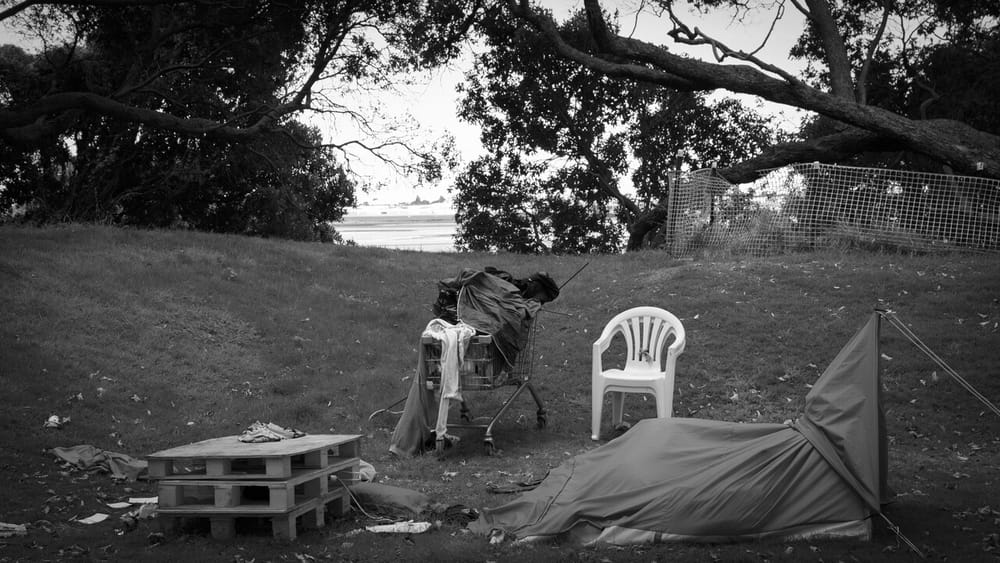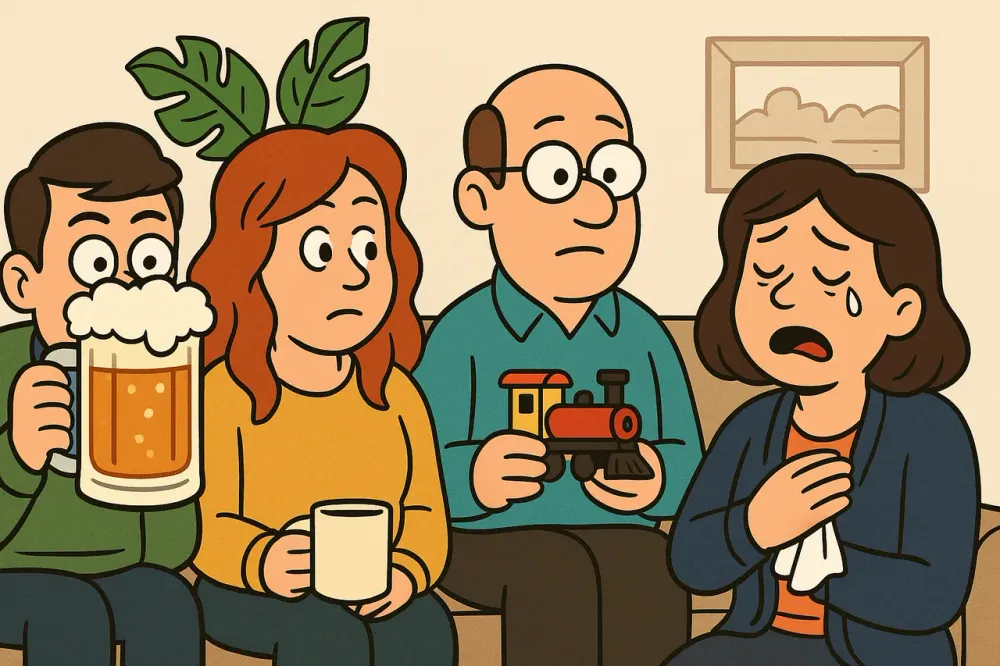
In our series, ‘Psychedelics and Mental Health,’ The Lovepost interviews experts in psilocybin, LSD, ayahuasca and cannabis to explore the resurgence of psychedelics in mental health research.
We launched the series with an introduction to psychedelics, considering how they have been used across the ages to treat mental health conditions, address trauma and enhance the connection between ourselves and nature. Here, we investigate the potential of psychedelic-assisted psychotherapy (PAP), and its attendant ethical questions. How do 'trips' open new paths to change, and how can anyone provide informed consent when the effect of psychedelics is unknowable in advance?
Edward Jacobs investigates the bioethical framework of psychedelic-assisted psychotherapy (PAP) as a Research Fellow at the University of Oxford’s Wellcome Centre for Ethics and Humanities. Together with scientific research on the plausibility of magic mushroom derived psilocybin in the treatment of obsessive-compulsive disorders, he examines ethical questions that arise when psychedelic properties are used to treat psychiatric disorders in medical contexts.
Scientists, psychiatrists and the media have become increasingly excited about the potential of this medical intervention. Jacobs, who is likewise optimistic, believes that we also need to consider the risks involved to ensure that we proceed with treatment that is in the patient's and society's best interests.
He co-runs a think tank which aims to ensure that the medical use of psychedelics is sustainable, equitable, and responsible. We approached him to learn about psychedelic-assisted psychotherapy and explore the bioethical questions it raises.
What do clinically prescribed psychedelics do to the brain, and how may this help treat mental health problems such as treatment-resistant depression and obsessive-compulsive disorder (OCD)?
Metaphors abound for what goes on in the brain during the acute effects of psychedelics like psilocybin. If ever you come across one, be sure that you hold it gently: they all necessarily oversimplify things! That includes my favourite: imagine the unhelpful beliefs and behaviours associated with a condition like depression (“I am beyond help and unworthy of love”) or addiction or OCD (lighting another cigarette, washing your hands) as ski tracks going down a snowy mountain. Once you’ve established a maladaptive pattern of thinking these thoughts, enacting these behaviours again and again; [it] becomes easier to do them again next time. To some extent, when you’re at the top of the mountain again, you could avoid those tracks and behave differently. But it’s very hard to do once they’re well established. Taking a psychedelic is like calling down a fresh fall of snow—the tracks might still remain, but they’re not as deep. So the principal benefit of psychedelics is that they provide a window of opportunity to do things differently next time. The changes aren’t automatic: you can go down the same pathways if you don’t make any effort to do things differently. That’s why it’s important to follow a drug session with a period of psychotherapy—active support from someone else to try things differently.
To add a bit more ‘brain’ to that answer, let’s take a step back and consider a dominant theory about how brains work all the time, whether you’re on drugs or not—the predictive coding model. According to this model, a major function of the brain is to generate and update a model of the world. It’s not just passively representing the data that comes in through the senses, it’s making sense of that data by reference to pre-existing models about how the world works. You can most clearly see this when you consider optical illusions like the Ames Room: we have expectations, born of experience, about how carpentered environments are shaped, how checkerboard floors look and the like; that are at some level encoded in the brain. When you look through the peephole of the Ames room, the data your photoreceptors get and pass onto your brain under-determines what’s actually out there. It could be an unusually huge woman and an unusually small man in a normal room, or two normal people in a room with a significant number of exceptionally carefully crafted, illusory features and strategic lighting. In this case, your brain’s best interpretation of the data, given its model of how the world works, is the former explanation.

This combination of perceptual data coming in and pairing off with pre-existing expectations about how the world is, happens all the time. So much so that some neuroscientists provocatively say that we’re hallucinating all the time—that what we end up seeing of the world is actually largely driven by an active creation of our own brain. It’s just that these hallucinations are veridical [coinciding with reality] most of the time.
During a psychedelic experience, it’s often reported that aspects of a familiar environment can seem quite different. That’s because, under psychedelics, the models that we bring to the world—the strong expectations—are weakened and loosened. We can attend to the raw stimulus of the environment a little more directly, a little less mediated by our expectations. Hence why people report a particular vividness to their experience, and the loftier writers make appeals to the freshness of things as akin to Adam’s eye on the day of Creation.
But these prior expectations about how the world is, are about much more than what reaches your eyes. One suggestion that I’m inclined to agree with is that the experiences of boundlessness, of loss of self—that are frequently reported with high doses of psychedelics—can also be seen as a dissolution of these prior [expectation]s. The idea is that our self is sort of the ultimate prior expectation. It’s the ultimate organising model of how we structure and make sense of our experience of reality—something with a robust, enduring “I” at the centre.
Moving into clinical applications, the idea is that negative beliefs—such as the belief that you are unworthy of love or that you are a dastardly horrible person—are also priors. [For example,] it might be that early experiences of abandonment could only be made sense of as a child by reasoning that you were inadequate or unworthy of love. Early experiences like this certainly can form the centre of someone’s interpretational framework of the world. So you can have prior expectations that lead to negative thoughts and interpretational biases, meaning [that] you’re quicker to interpret emotionally ambiguous experiences more negatively. Under this framework, the ‘REBUS’ (relaxed beliefs under psychedelics) model of clinical action, the drugs work by softening these fixed patterns of interpretation.
Interesting, how then do therapists ensure that patients are not going to have a bad experience when psychedelics are administered?
Out in public recreational use, there are some people who take drugs because they want to dull the pain; not to have fun or to feel good, but to feel less bad—perhaps drinking lots, or using heroin or smoking cannabis. But if you want an escape from the world like that, fuck me, psychedelics are a bad idea! Because so often, the very stuff that you are trying to get away from smashes into you with a locomotive-like force, and you have a very bad time.
In therapy, it’s not necessarily the case that all this difficult stuff, all this traumatic stuff, doesn’t come up within the container of the clinical room. But you are in a vastly different context, lying down with one or two therapists who you have spent a good time getting to know and trust. They have established a rapport with you and worked hard to cultivate a certain sense of safety. So when really difficult stuff—and it’s not just difficult, it can be harrowing, old-school-biblical-terrifying things that come up—the therapists are there to encourage you not to flee from it psychologically, but to go towards it. According to patient reports, that can be helpful and can generate insights that can lead to breakthroughs; not in the base symptomology but in how you relate to that symptomology.
What do you think of arguments (such as those once levelled at antidepressants) that the use of psycho-pharmaceutical substances to treat affective disorders is an ‘inauthentic’ treatment? What sets psychedelics apart from other primarily psychopharmacological treatments?
Those that were resistant to the introduction of SSRIs at the turn of the 90s described the whole enterprise as ‘cosmetic neurology’—calling out that they saw them as treating the surface symptoms at the expense of actually addressing the root disorder. It’s an easily-understood, person-centred criticism of those drugs. Even if altering the levels of available serotonin in a depressed patient’s brain can lead to a reduction in depressive symptoms, there is scarcely anyone that claims that depression is caused by a neurological chemical imbalance. People become depressed or anxious as a result of distressing, challenging experiences, either during crucial developmental periods or in the present during their adult lives. Moreover, low mood, hopelessness, and withdrawal are entirely understandable responses to some of the challenges that life can throw our way. SSRIs are seen by some as ‘inauthentic’ because, when someone is in a situation that is apt to make them miserable, adding in a drug that suppresses the felt sense of that misery, without changing anything about the surrounding circumstances, leads to a disconnect between the lived reality and subjective feelings of a patient.
As ever, the reality is much more complicated than the theory: many patients using SSRIs report that they help them feel more like their true selves. For example, if SSRIs dampen someone’s low mood or social anxiety sufficiently to allow them to spend more time in the company of friends, or to make it easier to engage in the things that bring them joy or meaning, the drugs can be just what is needed to bridge them back to some of the real-world, relational, sources of mental good health. For some, this may be enough. For others, the dampened symptoms can remain a sticking plaster. There is evidence to suggest that relapse is more likely to happen for those who have been treated with SSRIs, compared to those who have undergone psychotherapy. Proponents of the latter point to this as a demonstration that talking about the reasons that brought about depression, and coming into a better relationship with them, provides a sturdier fix.
The action of psychedelics is radically different to that of standard pharmaceutical therapy for affective disorders. The acute drug effects—the trip—can generate self-insights and new perspectives, and a wealth of personally significant, emotionally laden material. Patients report feeling more connected to themselves and their own values, their loved ones and the wider world, and often the trip itself is enough to make real headway [toward] dropping the negative patterns of thought and behaviour that were causing distress, or realising what changes need to be made to how they are living. These are changes brought about by experience, rather than the brute action of the drug, and so seem to avoid the charges of inauthenticity levelled at SSRIs. At the same time, the drug induces a ‘hyper-plastic’ brain state that can last some weeks. This can open a window of opportunity to support meaningful change through psychotherapy. In taking SSRIs, the patient takes a pill every morning, and lets it do its work on the brain. Psychedelic-assisted psychotherapy is an active process that the patient engages with.
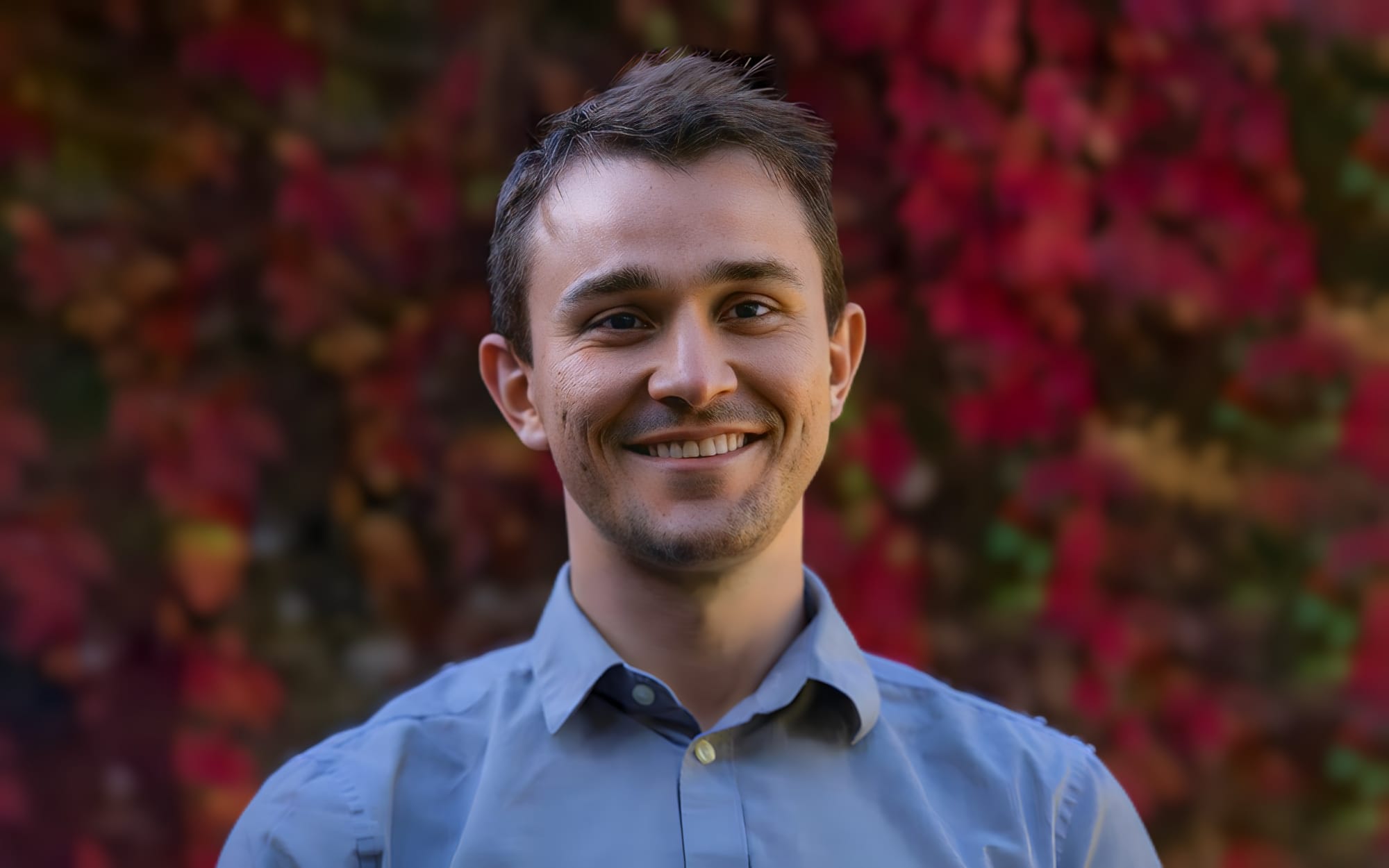
Widespread licensing of psychedelic-assisted psychotherapy or PAP is likely to occur soon, and with it, a massive increase in the availability of treatment options. Much of the treatment will occur in for-profit private settings such as Numinus, raising questions about access and privilege. Can you elaborate on some of these concerns? Related to that, how vital will effective government policy be to the therapy's expansion, regulation and accessibility?
For all of the promise surrounding the potential of PAP, it remains the fact that it is expensive. It’s not the drugs themselves that are inordinately costly, although their Schedule 1 status makes them subject to all sorts of costly bureaucratic handling and storage regulations that are not even imposed on heroin or cocaine—drugs with far greater harm profiles and risks of addiction and diversion. The costs are mainly related to therapist time—not just the guidance and support for patients during the session, but the preparatory sessions beforehand and the sober, post-drug work of integrating the material that arose during the drug session.
Even when psilocybin is licensed as a medicine, it will be some time before public bodies like NICE in the UK will be confident in the health-economic case for PAP. Even if PAP is more effective than SSRIs in treating, say, depression, does the difference in effectiveness justify the sizeable increase in cost to the public purse?
Making these assessments takes time, whereas for-profit actors will be able to offer PAP to private patients as soon as the drug is licensed. As a consequence, it is likely that only those with sufficient means will be able to access PAP when it is first licensed as a treatment. Many see this as an injustice—not just according to the familiar reason that wealth should not be a determinant of access to healthcare, but also that these drugs are often seen to be gifts of nature or God, and so it is especially inappropriate to use laws to cordon off the benefits they can offer, [making them available] only to the well-off.
It is important to remember that, as far as healthcare authorities are concerned, psilocybin is just another drug that needs to be well assessed and understood before it is offered through public healthcare. Practically, I would say that the most important within-reach policy for ensuring that wide access comes as soon as possible will be to mandate data reporting of outcomes from private providers, so as to hasten the generation of an evidence base in favour of the effectiveness and cost-effectiveness of PAP.
Do you see a place for non-medicalised, amateur psychedelic peer group ‘therapy’ as a treatment for mental health issues such as treatment-resistant depression? Would you caution against the expansion of such open-source therapy—or could this overcome some of the ethical challenges that the medical context promotes?
Great question! You see a wide breadth of positions about who should be permitted to administer these drugs therapeutically. At the extremes, I don’t think they should forever remain the sole preserve of state-approved psychiatrists. Nor do I think that anyone who has taken ayahuasca a handful of times and fancies himself a shaman or mushroom therapist should be given free rein to market himself as such. That said, I think it’s increasingly clear that there should be a role for peer-led and community initiatives in the psychedelic medicine ecosystem of the future. In fact, it’s possibly the only way that we’ll see the economies of scale necessary to make treatment widely accessible. The integration process following a psychedelic experience can unfold over months, rather than weeks, and we need data on how to retain the clinical benefit from a drug session long-term. Peer-facilitated integration groups, and complementary practices like meditation, sound-healing and bodywork are all anecdotally beneficial for this, and are all practices that can be done without clinicians with advanced training.
A key tenet of medical bioethics is ‘informed consent.’ Patients must be provided with enough detail about the procedure, its risks, and potential outcomes before agreeing to their treatment. How does psychedelic-assisted psychotherapy complicate informed consent, and how could this be overcome?
The most visible challenge for informed consent from PAPs is the fact that the peak or mystical experiences that the treatment frequently brings about tend to be described as ineffable—so great or extreme as to be beyond verbal description. So it seems that it’s quite hard to provide informed consent to that, because there’s not much information transmitted, or understanding achieved on the part of the patient, if they’re told alongside “you might experience nausea,” “you may have a transient headache,” that “you may experience something that is beyond description in words.”
One response to this, from bioethicists Will Smith and Dom Sisti at Penn, is to provide ‘enhanced consent'—to go into much more detail than in most treatments, and to acknowledge the gap. This could be supplemented by providing prospective patients with the option of speaking to those who have already gone through the treatment. I’m undecided about whether this reaches the threshold of informed consent that we typically expect for medical procedures, but it’s certainly closer to the ideal than if we didn’t include these extra measures.
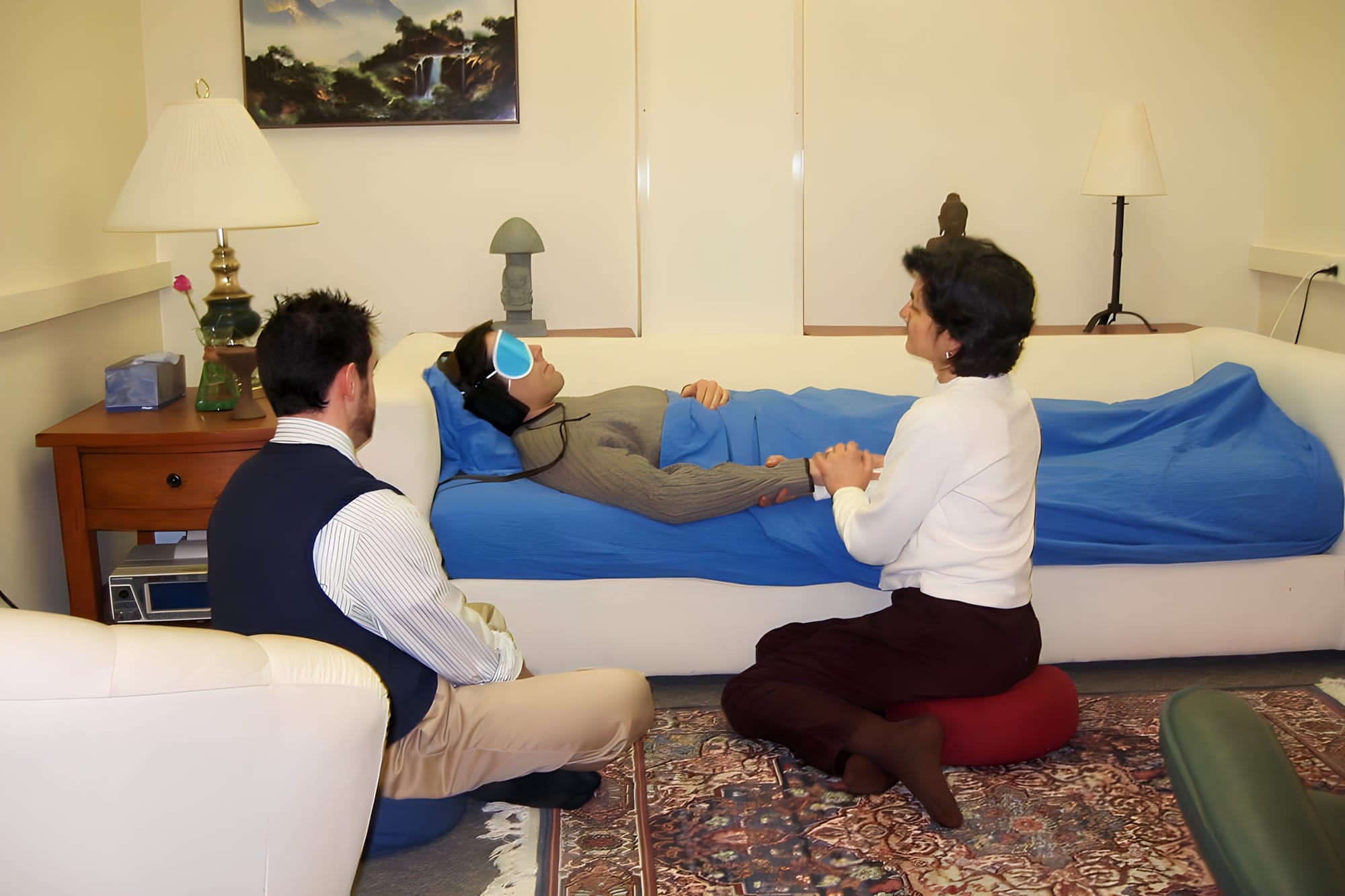
The subtler challenge comes from what happens after the acute drug experience. Psychedelic treatments can be transformative experiences. It’s not uncommon for trial participants to undergo shifts in their values, attitudes, personalities and priorities following treatment. And we know these aren’t just natural consequences of recovering from depression, since we see the same sorts of changes in experimental studies of psychedelics with healthy volunteers. Transformative experiences are potentially challenging to informed consent because it’s extremely hard, if not impossible, to accurately put yourself in the position of your future self with changed values. Also, should a prospective patient, when weighing up the significance of these shifts, judge them from their current pre-treatment perspective or their potential post-treatment worldview? There’s often a tilt towards an awakened spirituality following psychedelic experiences—people can find they want to start meditating, spend time alone in nature, pick up a spiritual practice, that sort of thing. If someone thinks that sounds awful and cringeworthy, is that a good reason for them to refrain from PAP? Because if they did go through with the treatment, and underwent these changes, they would likely cease to consider it awful.
There are some scholars who don’t judge transformative experiences to be a serious challenge for informed consent, a position that is defended by appeal to all other sorts of transformative experiences. Getting married, having children, and joining the military are all transformative experiences in the same way as psychedelic experiences: they can shift your values, priorities, and attitudes in ways that you can’t really know until you’ve done them. As such, they all require a leap of faith. And yet we standardly accept consent to these activities. So why should it be any different for PAP? Chiefly, I think it is different for PAP because medical interventions take place within an asymmetrical, professionalised relationship between a fiduciary and a vulnerable person that is governed by a duty of care.
Ultimately, I don’t think you can secure informed consent for psychedelic treatments because I don’t think the threshold for ‘informed’ can be met. But I also don’t think that’s necessarily a problem. Informed consent might have a central place in medical bioethics, but it’s not magical. It developed as a tool to minimise some of the risks associated with the asymmetry of the relationship between doctor and patient, legitimise treatments, safeguard patients, and uphold the doctor’s duty of care.
You note that psychedelic assisted psychotherapy is in some ways ‘medicalised mysticism.’ Indeed, some research points to patients obtaining a more spiritual outlook due to their treatment. What ethical and/or philosophical questions does this overlap between medicine and religion introduce?
There is an idea of neoliberal creep. The idea is that market dynamics or market-orientated logic are being applied to things that shouldn’t be bought and sold—such as human organs, surrogacy or sexual services. You might analogously conceive of the medicalisation of mysticism seen with psychedelics as a kind of medicalisation creep. Can—should—anything that can be, be leveraged for better health outcomes?
Spirituality engages us in fundamental questions about the nature of reality, of the human experience and of God, and there are those who think it’s functionalist to the point of offensiveness to reduce these powerful experiences that psychedelics engender to simply a means for an end. It’s not hard to see why this stance could be seen as hubristic. It’s kind of asking of God or the ultimate reality, “Yeah, but what can you do for me?”
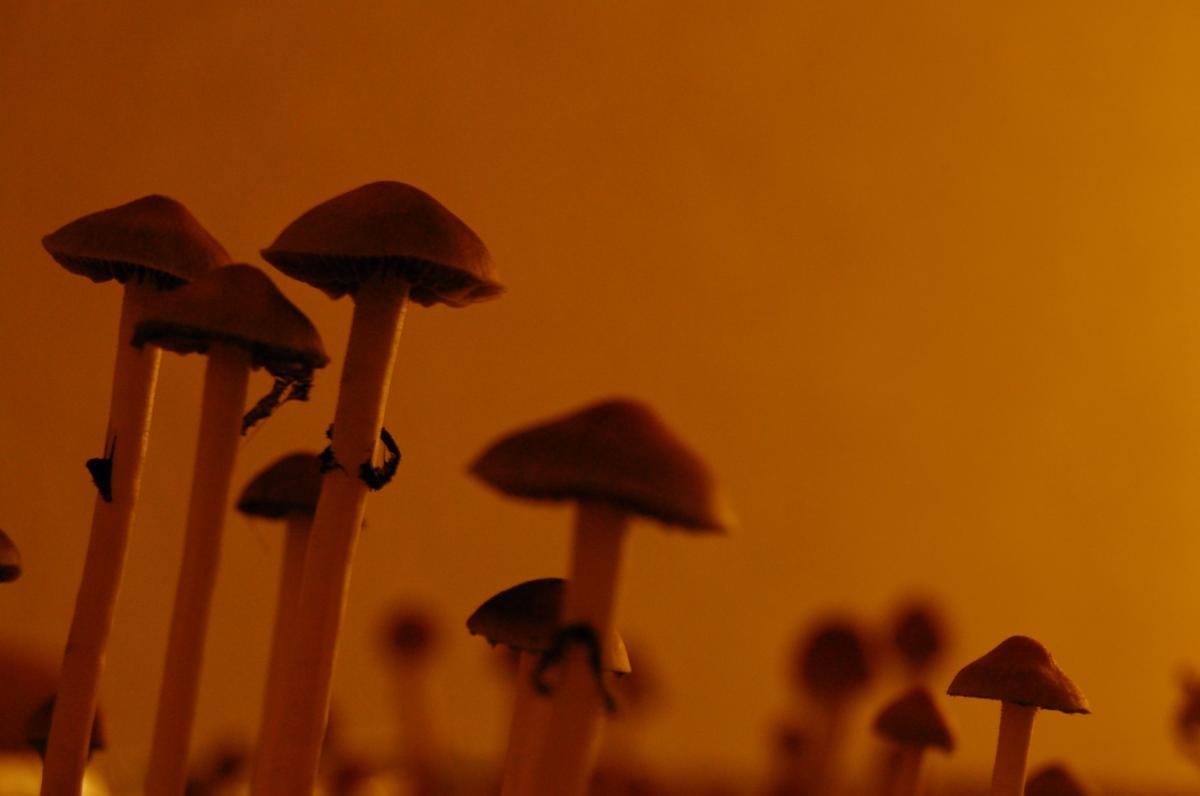
Remember that, over and again in these studies, people have reported that their clinical psilocybin trip was one of the most spiritually significant, personally meaningful experiences of their life. And it may be that dispensing these sorts of mystical experiences is the right sort of intervention for treatment-resistant depression or death-related anxiety, [or] secondary to terminal cancer. Maybe the mystical experiences that psychedelics can engender are an appropriate response to these sorts of conditions. [Perhaps] what people need when suffering from them is a radical ontological challenge, an ineffable experience of absolute awe and mystery that challenges you—"Hey, maybe you are misconceiving life in a really important way.”
But we are also developing these drugs for tobacco addiction, and there are patents for the use of psychedelics in hair loss, periodontal disease, and all sorts of speculative applications. These are, I think we can agree, considerably more minor applications than treatment-resistant depression. And I think it’s something of an ethical hazard on the horizon if a patient goes to his physician seeking help with his tobacco addiction and might, depending on his doctor’s sympathy towards psychedelics, wind up taking Varenicline (side-effects: mild nausea, flatulence) or psilocybin-assisted therapy (reassess metaphysical beliefs, robust changes in personality and life priority).
An interesting preceptive is offered by Rachael Petersen, who was a trial participant in a John Hopkins’ study on depression and psilocybin treatment. She wrote an article hyperbolically titled by her subeditor, Taking mushrooms for depression cured me of my atheism.
One of the questions that psychedelic medicine will really feed into is, what is psychiatry for? Petersen puts this problem perfectly when she noted that, after the trial, when her depression came back, it wasn’t that it came back smaller, but the space around the depression got bigger. It’s not so much that her depression went away, but her way of engaging with life shifted. That perspective is a bit more resistant to the common model in mental health practice, which is to quantify and put [it] in a scale any clinician worldwide could use. Human experience [gets] condensed to a number. There is a real debate to be had about whether or not such a result—in which depression returns ‘not smaller, but with more space around it—[is] a success. If what the long-term treatment is doing is making people better able to cope with their depression. When a journalist asked Peterson if she got better, she described this as a 2D question in the face of her newly 3D world.
Another dimension of this challenge of imposing spirituality quite directly into psychiatry is that, generally, I think that psychiatry reserves, in the mainstream, a sort of polite agnosticism. Interestingly, religious beliefs fit the criteria for delusions, apart from a little get-out clause that religious beliefs are often socially and culturally acceptable amongst the patient’s community. There’s very interesting literature tussling back and forth, where psychiatrists and philosophers try to carve out a place for mystical experiences which overlap quite considerably with psychoses. When someone is talking about a mystical experience they had. Very often, especially if you have an unsympathetic ear, it can sound like they are talking about a psychotic experience. The reason psychedelics complicate this further is because, in a sense, we are now intending to induce experiences like this.
However, it’s long [been] recognised that spirituality is good for you. Or rather, there is a concept across health known as spiritual resilience: people with an active, engaged spiritual life tend to have better outcomes across the board. So maybe there is an opportunity for psychiatry to sidestep that we are not actually engaging with any of the ontology here. People are permitted to interpret this as they are, and we can just point out that spirituality is good for you and say that, but nothing more than that.
One of the elements of my PhD research involves interviewing patients who have been through these trials to ask about how the patients themselves make sense of the fact that these transpersonal experiences and mystical themes arose, and the fact that they arose in this bounded context of medical intervention and due to a biological drug. Sadly, I can’t share any conclusions on that so far, but it seems that as well as having philosophers in armchairs reflecting on the significance of this, it’s very good to get the perceptions of the people who have had this experience. Ultimately it’s not just enthusiastic philosophers, researchers and scholars that have to make sense of this. It’s normal people going about their lives and all of a sudden having a spiritual experience.
Thanks for these insights into your work and the questions they raise, Eddie. The blurring of the conceptual boundaries between medicine and religion appears to be at the bioethical heart of the matter. And as you've said, questions about how best to safely and ethically navigate the sanctioning of spiritual experiences born of medical treatment have no simple answers.





